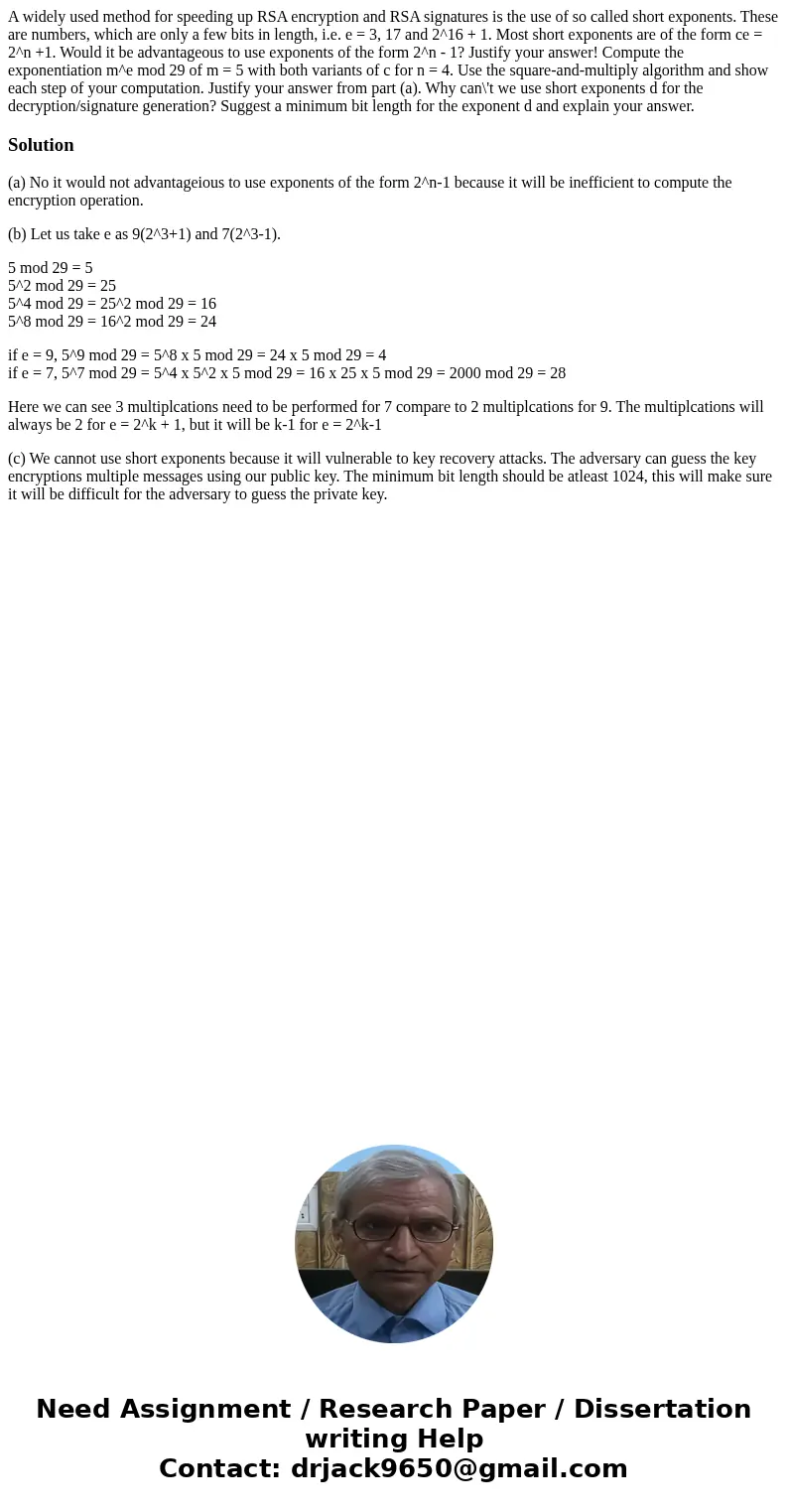A widely used method for speeding up RSA encryption and RSA
Solution
(a) No it would not advantageious to use exponents of the form 2^n-1 because it will be inefficient to compute the encryption operation.
(b) Let us take e as 9(2^3+1) and 7(2^3-1).
5 mod 29 = 5
5^2 mod 29 = 25
5^4 mod 29 = 25^2 mod 29 = 16
5^8 mod 29 = 16^2 mod 29 = 24
if e = 9, 5^9 mod 29 = 5^8 x 5 mod 29 = 24 x 5 mod 29 = 4
if e = 7, 5^7 mod 29 = 5^4 x 5^2 x 5 mod 29 = 16 x 25 x 5 mod 29 = 2000 mod 29 = 28
Here we can see 3 multiplcations need to be performed for 7 compare to 2 multiplcations for 9. The multiplcations will always be 2 for e = 2^k + 1, but it will be k-1 for e = 2^k-1
(c) We cannot use short exponents because it will vulnerable to key recovery attacks. The adversary can guess the key encryptions multiple messages using our public key. The minimum bit length should be atleast 1024, this will make sure it will be difficult for the adversary to guess the private key.

 Homework Sourse
Homework Sourse